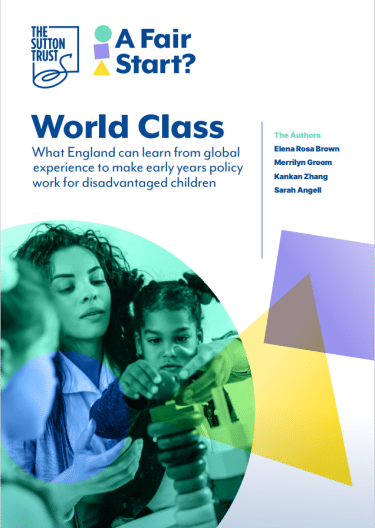Bringing together lessons from successful early years systems worldwide, key recommendations that would help ensure equal access to high-quality provision in England are listed below:
Children benefit from being in settings with highly qualified staff
- Pre-service and ongoing training to improve staff qualification levels should be a priority.
- Financial support and protected time for participation in initial qualifications and ongoing training are needed.
- England should re-instate the Graduate Leader Fund and consider targeting it to areas with higher levels of disadvantage.
- Early years staff wages should be increased and made more equitable across setting types.
Having a higher number of staff to children supports better quality provision
- England should at a minimum maintain and ideally increase the number of staff per child
in early years settings – other than at age two and under, where given England’s ratio is broadly in line with other countries with high-quality provision, existing staff-to-child ratios should be maintained.
England should remove barriers for disadvantaged families to increase participation.
- There should be equal access to early years provision for all children, particularly at ages two, three and four – where there is greater existing evidence of educational benefit. At a minimum, the government’s free early year entitlements should be expanded to lower-income families, for example using the same criteria as the current offer for disadvantaged two-year-olds.
- Ideally, all families would have equal access to early years provision, for example by making the government entitlements universal. Alternatively, a sliding fee scale based on parental income could provide universal access at an affordable funding level for the state, while supporting the most disadvantaged children to access early education and care.
- England could also consider offering universal, completely free part-time places in disadvantaged areas.
- More should be done to support disadvantaged families to take up early years entitlements.
Additionally, the early years is not just about formal provision in a pre-school or nursery, but also crucially about the wider support given to families. England should capitalise on the previous work of Sure Start Centres and current Family Hubs to offer combined services (also including health and family support services) – ideally to all families, but at a minimum as universal provision in the most disadvantaged areas.
